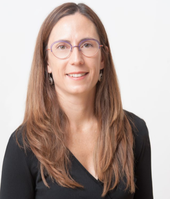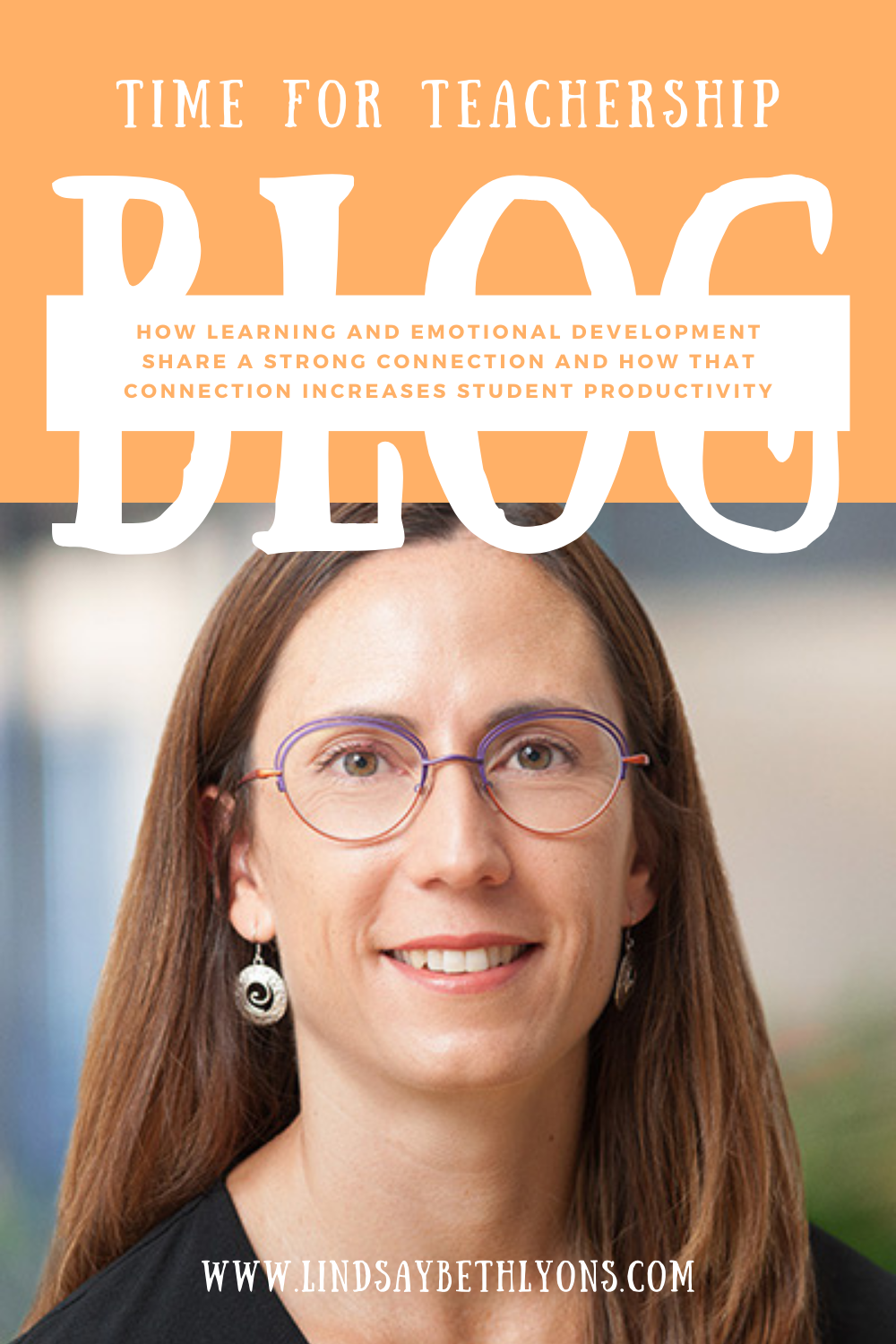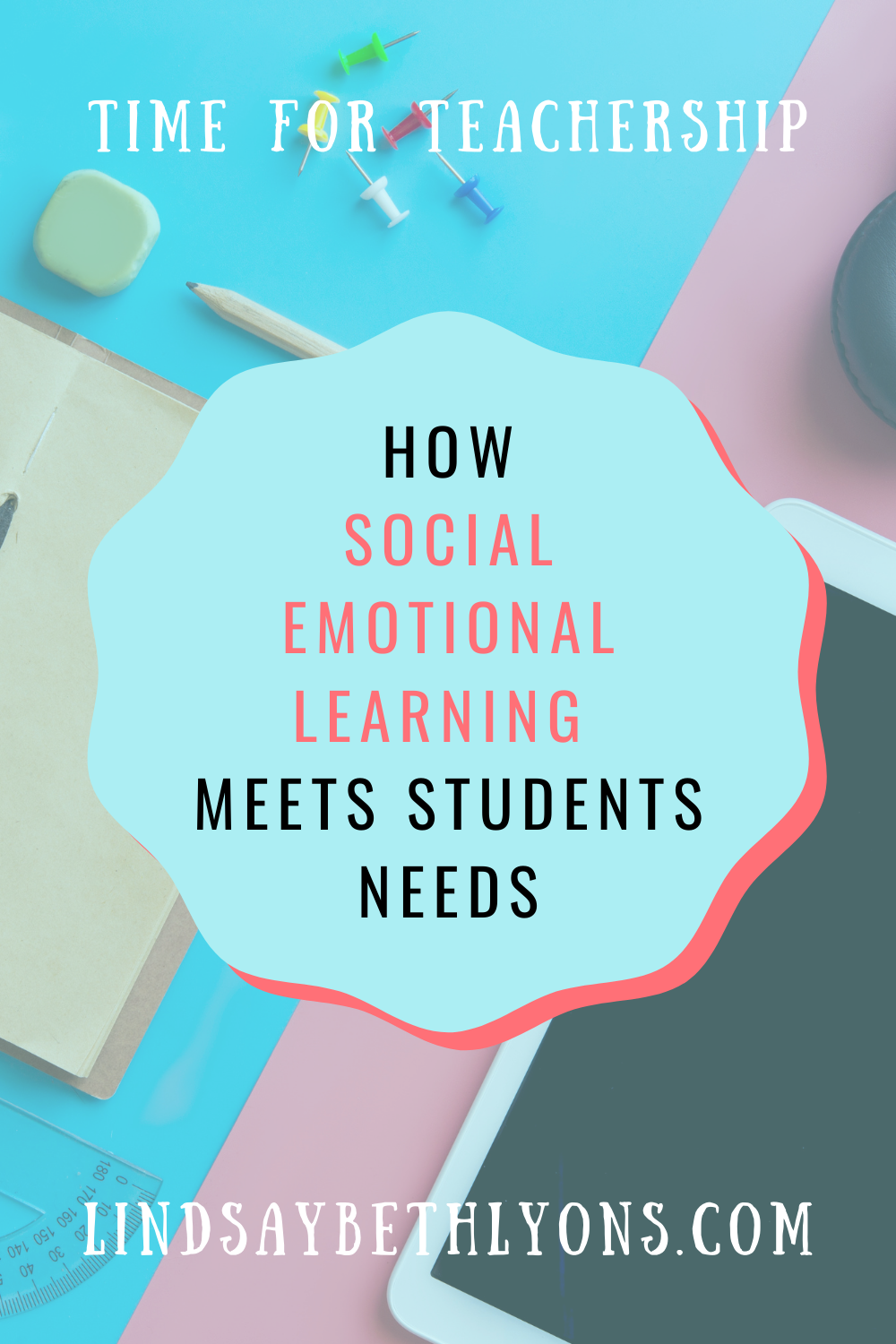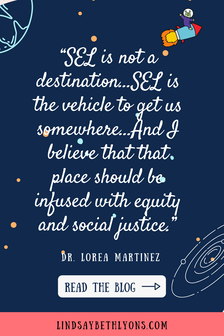 Listen to the episode by clicking the link to your preferred podcast platform below: Dr. Lorea Martinez is the founder of Heart in Mind Consulting—a company dedicated to helping schools and organizations integrate Social-Emotional Learning in their practices, products, and learning communities. She has worked with schools, districts, and organizations to guide SEL implementation efforts, including training teachers and leadership teams. An educator who has worked with children and adults internationally, Dr. Martinez is currently a faculty member at Columbia University Teachers College educating principals in SEL. She currently lives in the San Francisco Bay Area with her husband and two daughters. SEL Considers the Whole Human Isn’t it a bit odd that traditionally in school, children and young adults are thought of only in relation to their performance or their productivity? If you feel like students deserve spaces in school to feel seen, heard, and supported, it’s time to bring in more social emotional learning. SEL gets teachers, admin, and leaders to practice seeing students as well as themselves as a whole human with needs. As a result, students who have their emotional and mental wellbeing taken care of show more progress and achievements in their academic goals. Aligning Our Teaching with Students' Emotions Social emotional learning is becoming more widely used in schools nowadays because the research really shows that learning and emotional development have a strong connection. Dr. Martinez’s book goes through all aspects of SEL including the misconceptions people have. One of those misconceptions is that it only applies to students. But students learn from teachers and teachers set the best example when it comes to talking about their emotions and what tools they are using to process. So it’s critical that we model those lessons so that our students can employ these skills as well. One challenge for educators is to bring out students' curiosity. Curiosity is a complementary emotion for the classroom because it means the mind is open and ready to receive information. Boredom however, is combative to receiving information. So when conducting lessons, you really have to ask yourself whether you’re aligning the emotions you want your students to have with your pedagogy and the type of content you’re sharing. “The brain doesn’t pay attention to things we don’t care about. And that is not students “being difficult”. That is just neuroscience, right?..So a way to counteract that, as a teacher, is really connecting what you are teaching with students' interests, with students’ passions, and then providing a choice.” You can engage in more equity using SEL because you’re more likely to be aware of social and emotional dynamics and structures that are disproportionately affecting certain students. SEL is naturally going to get us closer to social justice and equity. More educators would advocate for more opportunities for disadvantaged students. More students would be able to show up as their best selves every day. When it comes to classroom policies and school-wide changes, ask yourself whether these things are really supporting student success. If it’s not or if it’s making it harder for students to succeed, it doesn’t belong there. “SEL is not a destination...SEL is the vehicle to get us somewhere...And I believe that that place should be infused with equity and social justice.” If we can get more schools to recognize the holistic needs of students, they’ll naturally be able to turn their attention to excelling in their projects and classes. Continue the conversation below in the comment section and join our community of educational visionaries on Instagram, LinkedIn, and Facebook. Until next time leaders, continue to think big, act brave, and be your best self.
0 Comments
Leave a Reply. |
Details
For transcripts of episodes (and the option to search for terms in transcripts), click here!
Time for Teachership is now a proud member of the...AuthorLindsay Lyons (she/her) is an educational justice coach who works with teachers and school leaders to inspire educational innovation for racial and gender justice, design curricula grounded in student voice, and build capacity for shared leadership. Lindsay taught in NYC public schools, holds a PhD in Leadership and Change, and is the founder of the educational blog and podcast, Time for Teachership. Archives
May 2024
Categories |





 RSS Feed
RSS Feed